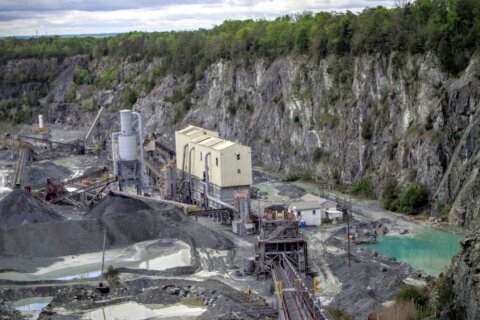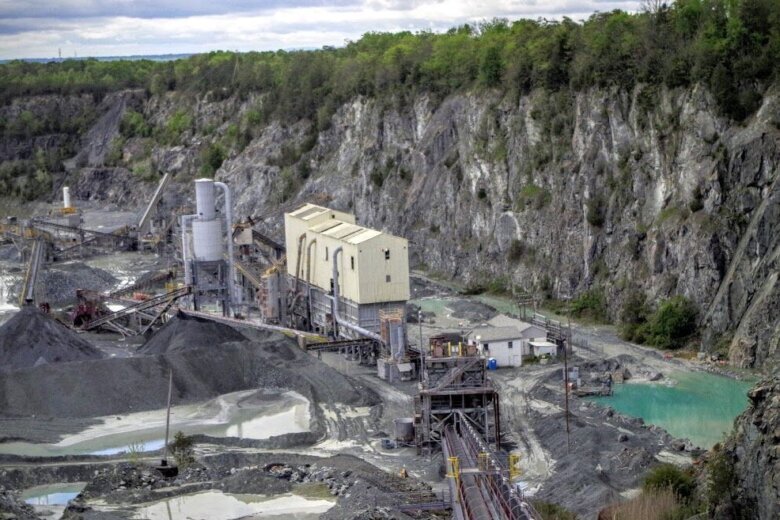Arlington, DC are ‘most vulnerable cities in the US’: Boil water advisory points
This week’s extensive, and brief boil water advisory for all of D.C. and most of Arlington, Virginia, demonstrated a major vulnerability in the national capital region’s drinking water supply.

This week’s extensive boil water advisory for all of D.C. and most of Arlington, Virginia, demonstrated a major vulnerability in the national capital region’s drinking water supply.
“They’re 100% dependent on one source,” said Michael Nardolilli, executive director of the Interstate Commission on the Potomac River Basin. And there’s only a one-day backup supply if something goes wrong.
“Arlington, which is the home of the Pentagon, and D.C., which is the home of the federal government, are the most vulnerable cities in the United States to a cutoff of their drinking water supply,” Nardolilli told WTOP.
The Potomac River is the sole water supply for the District, Arlington County and the City of Falls Church, which is processed at the Washington Aqueduct, operated by the U.S. Army Corps of Engineers.
In 2016, WTOP reported water officials were finally making public a long-standing water system shortcoming — the Washington Aqueduct only has 24 to 48 hours of water supply available, if a major spill or contamination should make the Potomac River unusable.
A boil water advisory was issued by D.C. Water late Wednesday night as a precaution after concerns were raised about increased cloudiness in the drinking water, known as turbidity, caused by an unusually large algae bloom in the Potomac River. The advisory quickly lifted Thursday because regular testing indicated the treated water never ended up deviating from drinking water standards.
“This whole incident highlights the need to make the region more resilient,” said Nardolilli.
No other water source
The Aqueduct is the only local water facility with the Potomac as its only source.
WSSC Water, which serves most of Montgomery and Prince George’s counties in Maryland, draws 30% of the water it sends to customers from the Patuxent River. Meanwhile in Virginia, Fairfax Water, which serves Fairfax and Prince William counties, gets a portion from the Occoquan Reservoir. Loudoun Water is supplemented by Goose Creek.
Earlier this year, the Energy and Water Appropriations Bill approved by Congress and signed by President Joe Biden contained $500,000 in funding for the U.S. Army Corps of Engineers to begin a study on potential solutions. Another House bill, setting aside $600,000 for studying drinking water resources will be marked up next week, said Nardolilli.
“The Army Corps wants this study to examine all possibilities,” said Nardolilli. “Maybe a pipeline coming down from Harpers Ferry, maybe reverse osmosis in the Potomac River to take out the salt or injection into the aquifer underneath Washington, D.C.” for underground storage.
Another option, which Nardolilli said is supported by both the Interstate Commission on the Potomac River Basin and the Metropolitan Washington Council of Governments, would be to acquire a still-in-use quarry in Montgomery County and convert it into a reservoir.
How a quarry reservoir would work
As WTOP first reported in 2016, local water officials have been looking at the Travilah Quarry, on Piney Meetinghouse Road in Rockville — which yielded the crushed stone to build the Intercounty Connector and to widen Interstate 270 — as a potential place to store water.
“Once the reservoir was constructed, pumps would be put in place to fill it up (with water from the Potomac River),” said Nardolilli. “Then, when we needed it, we wouldn’t have to pump it anywhere. We could just open the valves and, by gravity, it would come into the system again.”
Today, if there were a severe drought, water could be released into the Potomac from Little Seneca Reservoir, located in Black Hill Regional Park in Boyds, Maryland, or Jennings Randolph Lake, which straddles Maryland and West Virginia.
However, in the event of severe contamination, water stored in a Travilah Quarry reservoir…
Read More: Arlington, DC are ‘most vulnerable cities in the US’: Boil water advisory points


